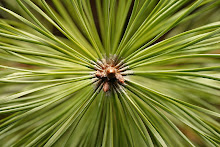I spent a lovely afternoon being sweetly entertained by a Celtic harpist - or in her explanation, a "harper" since" harpist" is reserved for only those who play the larger harps. The soothing lullaby sounds produced by this little bit of Ireland suited me just fine! It all prompted me to do a little research on harps in general and the Celtic harp in particular - and it is a surprising history indeed.
Evidence supporting the existence of the harp in ancient times comes from burial chambers and wall decoration of the early Sumerian and Egyptian cultures. But it was the more portable instruments developed by the Asian nomadic tribes that bear the most resemblance to the Celtic or Gaelic harp. Smaller triangular harps appeared around the 11th century in Ireland and the Scottish Highlands for they could be easily carried on foot or on horseback.
During the Middle Ages in Europe, harpers attained great popularity and status being indispensable in the entourage of all Gaelic monarchs and nobles. In the early 1500s the British monarchy began to recognize harp music as a key component of the Irish and Scottish national identity. They became committed to stamping out the playing of harp music by means of imprisonment or even execution. In the 1650s Cromwell ordered all harps and organs throughout Ireland to be destroyed and harpers were forbidden to congregate. Queen Elizabeth I added the punishment of death by ordering all harpers to be hung and their instruments destroyed. By the late 1600s, the Irish nobility had lost much of it's wealth and influence. Many of the remaining harpers became itinerant entertainers traveling long distances to visit and play for their regular circuit of patrons. Over time harp music's popularity declined, until the 1970s brought a revival of early Irish music and instruments.
I am including a number of photos from the web of Celtic harps and harpers. Please do not use these photos in your artwork, but the vintage postcard and the vintage black and white ad are free for you to use in your work.
Information from Celtic-Instruments.com




































Yikes, how sad England took away the harps and harpsters to squelch nationality. To put someone to death for creating such beauty as harp music, it's so soothing. Thanks for a little history Maureen and for the images!
ReplyDeleteanother great post - interesting stuff & cool pics
ReplyDeleteWho would have ever thought playing the harp could be so dangerous!
ReplyDelete